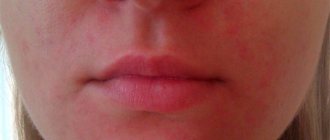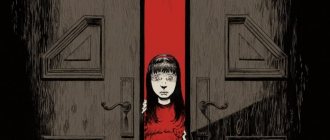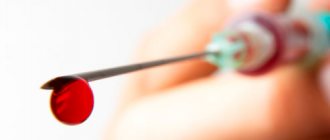Anxiety, fear and phobia...
Dentophobia is an irrational and unsubstantiated panic fear of dentists and any dental procedures, accompanied by physical and psychological reactions of a person.
As a rule, people with such a phobia seek the help of a dentist only in the most advanced cases of dental disease.
Before this, a person tries in every possible way to overcome the root of the problems on his own, resorting to the help of traditional medicine and the advice of people around him. The result of such home treatment always leads to complications such as pulpitis, gum pathologies, and extensive caries.
Types of phobic conditions
After conducting a series of studies, experts came to the conclusion that there are three types of dental phobia:
- Congenital phobia, the most rare type of insurmountable fear of all types of dental procedures. Congenital dental phobia occurs before any medical procedures and is expressed by an excessive negative attitude towards them.
- An acquired form of fear, which is the most common phobia of the dentist's office. The reasons for this phenomenon may be past failures and unpleasant experiences with dental treatment. The phobia is characterized by a stable, persistent nature of manifestation and vivid symptoms.
- Imaginary dental phobia occurs most often in people of different ages who have not previously visited a dentist’s office. Full-fledged fear is actually based on a wild imagination that is not supported by any facts. In this case, it is easiest to stop being afraid of dentists; this type of phobia is easily cured, since a far-fetched opinion is easier to neutralize. After visiting a qualified dentist and painless successful treatment, the phobia subsides.
Signs of unreasonable dental phobia:
- panic anxiety;
- increased muscle tension;
- complete refusal to contact or consult a doctor;
- lack of control over actions;
- headache of varying intensity;
- abnormal heart rhythm, problems with blood circulation (frequent heartbeat, abnormal blood pressure, etc.);
- digestive and gastrointestinal disorders (vomiting, diarrhea, colic, lack of control over urination);
- dilation of the pupils of the eyes, which is not justified (mydriasis);
- loss of consciousness or fainting state;
- feeling of helplessness and inability to control the situation;
- excessive sweating.
As the experience of past years shows, many potential clients of dental offices were denied treatment, despite the fact that they had full-blown dental phobia.
Even such an important procedure as prosthetics after tooth loss was not performed on patients as a result of an overwhelming fear of the dentist’s chair.
As a result, a person’s unpresentable appearance significantly influenced his social adaptation. Today, people with this problem in any case receive qualified help to get rid of dental phobia.
Causes of the disease
If you feel the first signs of such a fear, then try not to allow it to escalate, because having brought the body to a real phobia, it will be much more difficult to get rid of it. The tooth itself will not stop hurting and sooner or later you will have to go to the doctor. And the sooner you do this, the easier the whole procedure will be.
To help yourself figure out where this fear comes from and how to get rid of it, you need to clearly determine why it arose. There may be the following common explanations for this:
- Previous negative experience with dental treatment. Perhaps the doctor was incompetent and performed sloppy actions, or even used outdated instruments or forgot about such a detail as pain relief. The next time after a difficult and scary procedure, a person will not want to repeat it again.
- Fear that the dentist will blame the patient for neglected teeth, neglect of his health and reproach him in every possible way. For some, reprimand can be more scary and humiliating than the treatment itself.
- If, during pregnancy and birth of a child, disturbances in the production of hormones such as serotonin and norepinephrine are discovered, then throughout his life he will be too anxious about any unusual manipulations that cause pain or discomfort.
- A low pain threshold, increased sensitivity or mental pathologies also affect the presence of such fear.
- Numerous stories from relatives, friends, neighbors, stories in the news since childhood form an insurmountable fear of the dental chair in the child.
- The unknown of what the doctor will do, how it will affect dental health, unclear names and new technologies can make a person wary. It’s much easier when you understand what will happen and what the consequences will be.
- There are also cases when fear is just an aesthetic problem. For example, a woman is embarrassed to visit a male doctor and sit in front of him with almost no makeup and in an awkward position with her mouth open. In this case, the phobia will not be caused by the manipulations themselves and can be treated quite simply - just find a female dentist and establish friendly contact with her.
- In case of fears of pregnant women who have to have their teeth treated during this delicate period, there may be a fear that any procedures, and especially medications and anesthesia, will harm the baby. In fact, today's medicine is able to offer patients medications that are quite safe in this regard, which can also be used during pregnancy. It is much more dangerous to develop dental diseases and ignore them. After all, the infection can quickly spread throughout the body and harm the unborn baby.
We suggest you read: How to feed a child with stomatitis
Advice from a psychologist on how to stop being afraid of the dentist
Dentophobia is a completely natural and understandable fear, since dental treatment is a rather unpleasant procedure in which a person feels completely helpless. This is why so many people are interested in how to stop being afraid of the dentist, how to overcome the panic generated by the need to visit the dentist.
There are three types of dental phobias: imaginary, acquired and congenital. The first is more common in children who have not previously visited dental clinics, but have heard about this horror. Acquired - appears after a bad experience. This variety is the most common. The rarest variation of a phobia is considered to be congenital, consisting in a negative attitude towards absolutely all medical procedures.
The symptoms of those who are afraid of the dentist are all similar. A person feels an irrational fear of inexplicable origin. Such an individual is unable to cope with his emotional manifestations and begins to become more afraid of the dentist. The imagination draws terrible scenes of frightening content, drawing a person into their whirlpool more and more, who cannot stop the flow of unpleasant thoughts.
Experienced dentists distinguish the main signs of dental phobia, which differ from ordinary anxiety. Below are the main signs of a phobia:
– strong muscle tension;
– refusal to interact with a doctor;
– panic anxiety;
– sharp headache;
– pallor of the dermis;
– the patient is unable to control the actions performed, and also cannot perform basic movements;
– gagging;
– failure of cardiac activity (pressure fluctuations, vascular spasms);
– increased breathing;
– frequent urination;
– hyperhidrosis;
- pre-fainting state.
Strong individuals are able to overcome dental phobia on their own, so they do not wonder what to do if you are afraid to go to the dentist, but there are few such people.
For all those who are unable to cope with dental phobia on their own, two approaches have been developed: medication and psychotherapy.
The first is to take special antidepressants. Long-term therapy with antidepressants is not addictive and is well tolerated. The patient begins to feel a reduction in fear after three weeks of use. To fix the effect, therapy lasting 3 months will be required.
Antidepressants are used for severe phobias. With a slight variation of fear, it will be sufficient to conduct an explanatory conversation and an anesthetic injection before medical intervention.
For more resistant dental phobia, premedication should be carried out, which consists of prescribing sedatives several hours before the planned procedure.
The psychotherapeutic approach is aimed at identifying the cause that gave rise to the phobia in order to successfully eliminate it. The main goal of psychotherapeutic sessions is for the therapist to convey to the patient the information that fear is easily controllable, and the lack of dental intervention will certainly cause serious consequences.
Among psychotherapeutic methods, preference is given to rational therapy (explanatory conversations regarding the irrationality of fear), cognitive-behavioral direction (the client is taught to identify incorrect thoughts and replace them with correct ones), psychoanalysis (consists of working through situations that gave rise to fear), course direction (situations that frighten the patient are identified , then they confront him with his own fear), supportive therapy (the result is consolidated).
Psychologists also recommend using a method called “anchoring.” A person should remember situations from his own life when he felt a sense of fearlessness, courage, endurance, deep calm and fix it in his consciousness. While sitting in the chair for a dental appointment, a person should evoke this anchored sensation.
How can a dental phobe treat his teeth?
Be sure to notify your dentist in advance that you are a dentophobe.
There are usually no problems diagnosing a phobia. Even a dentist can make such a diagnosis. As a rule, patients do not hesitate to tell the doctor about their fear.
An important nuance: fear of a dental examination should not interfere with dental treatment. If a person is afraid of dentists, he should directly warn the dentist of his fear. The specialist will choose the right approach to the patient so as to minimize the manifestations of phobia and still solve the dental problem and cure the teeth.
A few tips to make your visit to the dental clinic easier:
- you should choose only qualified doctors, giving preference to large clinics;
- you should warn the doctor in advance about your fear;
- You can wear sunglasses so as not to irritate your eyes with the bright light of the lamps in the doctor’s office;
- It is recommended to carry out treatment only under anesthesia.
If the individual approach does not work, and the patient is ready to lose consciousness from horror while in the dental chair, there is only one way out - to seek help from a psychotherapist.
Choose a good dentist
First, you need to clearly understand that postponing a visit to the doctor does not solve the problem, but only aggravates it, thereby provoking various negative consequences.
Before making an appointment, you should study information about the qualifications and experience of the dentist. It is recommended to choose only an experienced specialist. In addition, the environment in the dental clinic should be comfortable, and the attitude of the medical staff should be friendly. If a medical institution leaves a bad impression, you must refuse treatment there and look for another hospital. On the eve of a visit to the dentist, it would be a good idea to study reviews about the doctor and the medical institution in which he provides services.
Along with this, you must completely trust your doctor.
Is this really a phobia?
Dental phobia is not a whim. This is an irrational, uncontrollable feeling of fear. It is almost impossible to overcome or reduce it on your own. A patient with dental phobia in case of unbearable pain can go to the dentist, but such a visit in most cases turns out to be unsuccessful:
- the patient experiences very strong tension from the very beginning, the main frightening moment for many is the injection;
- communication with the doctor is reduced to nothing, the patient cannot clearly answer questions and perceive information from the dentist or nurse;
- many experience attacks of arrhythmia and a sharp increase in blood pressure;
- For some, panic leads to loss of consciousness.
Of course, there can be no talk of any treatment in such conditions.
Causes of dental phobia
How to stop being afraid of dental treatment? First of all, you need to figure out what caused this condition. Every phobia has its own reasons. In the case of fear of going to the dentist, these may be:
- negative, unpleasant, painful experience;
- very acute toothache;
- improperly organized, rude, forced treatment in childhood;
- fear of anesthesia or its insufficient effect;
- very poor, neglected condition of the dental cavity, because of which a person is embarrassed to open his mouth and show his teeth to anyone, even a specialist;
- the expectation that the doctor will speak negatively about the condition of the oral cavity and rare visits to the dental office.
How to overcome fear of the dentist?
If a phobia wins, then you need to fight it on all fronts. It is necessary to work on fear both independently and with the help of a psychologist. It should be understood that there is simply no other way to cure teeth, and in case of acute pain you will still have to go to a specialist.
What to do if you are afraid to go to the dentist? Tell your doctor about the problem. What the doctor can do:
- Offer sedation. This is a superficial sleep - a state in which a person calms down, relaxes and better experiences all unpleasant manipulations.
- He will offer to treat your teeth under general anesthesia. In this case, you will only need to survive the injection, and everything else will happen without the conscious presence of the patient.
- Modern clinics use non-drug methods to calm patients, for example, music or multimedia accompaniment.
- The use of silent equipment, because for the majority of our compatriots, fear is associated precisely with the sound of the drill.
For a patient with dental phobia, it is important to find “their” doctor who takes into account psychological characteristics and knows how to prevent panic or deal with it. It is important that before treatment the patient knows what will be done to him, what methods and tools will be used, what the consequences may be, etc.
How to help a child?
Issues of fear are encountered much more often in pediatric dentistry, because children are afraid of all manipulations without exception, even the most harmless ones. And they are even more afraid of doctors. The child is not yet able to figure out which doctor is in front of him and what exactly he will do. The experience of vaccinations, blood tests, or treatment with injections provokes a child to further fear the man in the white coat.
Already at the age of two years, there may be a need to see a doctor, but the child is afraid to have his teeth treated. He is not able to control his emotions and a lot depends on the behavior of his parents and the doctor at this moment.
The reasons for children's fears may be not only the experience of injections and fear of upcoming pain, but also various stories that he heard at home from parents or other relatives. Also, children quickly become wary when adults show that something unusual is happening, ask the child not to be afraid and behave quite tensely. This situation indicates that something unpleasant will happen.
Alternative Treatments
In the most extreme case, when all the advice does not help and there is no strength to control your fear, you can resort to an extreme option in the fight against a phobia - sedation. This is a special procedure that is carried out with the aim of maximally calming a person before scary manipulations.
At the same time, the patient is immersed in a shallow sleep, similar to full anesthesia, but a slightly different state. As a result, the person feels virtually no pain and, even after the medication wears off, may forget about what happened in the doctor’s office.
In addition to the efforts of the patient himself, the actions of the dentist are also important, which should be aimed at establishing contact even with the most difficult and sensitive people:
- Playing soft music or soothing sounds of nature will create a relaxing and pleasant atmosphere in the office.
- The presence of a screen or video glasses will distract the patient from terrible thoughts with the help of a film, cartoon or some exciting footage.
- A calm heart-to-heart conversation, showing personal interest in a person has a calming effect.
- When communicating, avoid criticism and moralizing; this will only strain and intensify the unpleasant feelings of an already frightened patient.
- Have general sedatives or anesthesia on hand for the most difficult cases.
Should you be afraid of dentists, and what is dental phobia?
Twenty years ago, a visit to the dentist’s office did not bode well, and people tried by hook or by crook to postpone going to the doctor, using various methods of traditional medicine and abusing painkillers. Outdated Soviet-era medical equipment, primitive anesthesia that made your cheeks swell, frightening sounds and vibration of the drill, instruments that belonged in a torture chamber, painful sensations throughout the whole day - this is how patients imagined dental treatment. And then - long promises to ourselves to never eat sweets, stop drinking coffee and brushing your teeth twice a day, so that, God forbid, you don’t end up in the dentist’s office again.
Over the past decades, dentistry has stepped far forward; the most modern innovative methods are used in dental treatment, for example, to get rid of caries, it is not necessary to use bur drilling; in its initial stages, the diseased tooth is cleaned with a laser or impregnated with an infiltrant. Drills used in dentistry are almost silent and have a low level of vibration, which virtually eliminates any pain, and an injection of anesthetic after treating the injection site with a special gel can be performed by an ultra-precise computer system.
Modern dentistry office
However, people “in the old fashioned way” continue to be afraid of dentists; as they say, there is still a residue. It is quite normal to be afraid of the unknown and doubt how painlessly the doctor will treat bad teeth, because not a trace remains of the former fear after just one visit to a modern dental office. But some people, against the background of ordinary fear, may develop dentophobia - an insurmountable fear of dental treatment. Patients with severe dental phobia may exhibit a variety of symptoms when visiting, or even thinking about visiting a doctor, ranging from panic anxiety, refusal of treatment, increased sweating, dizziness, to headaches, cardiac problems, digestive disorders and even fainting.
Facts about Dentophobia
To help reduce unreasonable fear, here are some interesting facts that are associated with some mythical beliefs about dental treatment:
- Fear of undergoing dental surgery during pregnancy. This is a fairly common fear, but completely wrong. Quite the contrary, because there is a constant source of infection in the mouth, it can lead to further problems in the development of the fetus and even affect the successful course of labor. That’s why it’s so important to have your teeth treated in a timely manner, preferably before pregnancy. But if this moment was missed, then at this time you can also use the services of a dentist and medications that are completely safe for the unborn child.
- Fear of an injection, which is given to numb the further process. Some patients are much more afraid of this procedure, expecting that the injection itself will become very unpleasant and the sight of the needle can cause them to faint. Today, dentists use fairly small doses of high-quality and effective drugs. Some of them are available to be administered in some other alternative form if you ask your doctor about it. After applying anesthesia, pain will not be felt at all, even with the most serious interventions.
- Fear when removing a nerve. Previously, this procedure was performed without anesthesia and many remembered it as incredibly painful. Today, this issue has been completely resolved and no doctor will allow such a manipulation to be performed without local anesthesia. What is much more important is that a diseased nerve, if not eliminated in time, can lead to more serious problems in the oral cavity, which will take much longer to treat.
- Wariness before whitening procedures. Modern methods of in-office whitening have names that are incomprehensible to humans. But everyone knows that they use strong chemicals and are afraid that they can damage the enamel. In fact, if you carry out such a procedure in a good clinic that values its reputation and uses only high-quality modern drugs and instruments, then there is absolutely nothing to be afraid of.
- The drill is the main enemy of the dentist's patient. Many still remember what they were like just recently - noisy, voluminous, and some doctors did not handle them very carefully. Fortunately, times have changed, and now devices for treating carious cavities are much more delicate and work much quieter. In addition to the drill, there are other alternative methods for treating caries and cleaning the cavity, which eliminate any pain.
- The upcoming procedure of prosthetics or, worse, implantation puts some patients in a semi-fainting state. But the use of modern anesthetics will completely eliminate any unpleasant sensations during their installation. And the healing period is also accompanied by taking medications that are safe for the body, but can relieve pain of any intensity. After installation, the implants are not felt at all in the jaw, and you will enjoy using them for many years.
- Only 2% of people have never visited a dentist in their lives.
- It has been established that every tenth patient experiences fear of the dentist’s chair. And most often, these are women.
- Successful dental treatment in childhood can prevent most of these phobias in adulthood.
- The weak effect of painkillers can be explained by the patient’s extreme fear, as well as by taking other drugs of a similar group or even alcohol.
We suggest you familiarize yourself with Dentophobia, fear of dental treatment and how to deal with it
Fear of the dentist and any procedures performed in such an office is quite common. Every dentist and almost all inhabitants of the planet encounter it. The main thing is not to start this problem, but to try to deal with it yourself or with the help of specialists.
Recommendations
It is recommended to relax at home afterwards and sleep. This will allow the nervous system to calm down. After this you need
will pay attention. To prevent food from getting into the hole
If the removal was after the appearance of an abscess, the doctor may install drainage. Be sure to visit a doctor on his recommendation and let him make sure that the inflammatory process has stopped.
You will need to rinse your mouth after tooth extraction. A decoction of chamomile, soda or saline solution, to which you can add a little iodine, is suitable for this.
You need to brush your teeth as usual, but very carefully so as not to damage the fresh wound. Healing will occur within a few days
During this period, you should refrain from eating salty, spicy, and sour foods, so as not to irritate the fresh wound. Chew on the side where the tooth was removed very carefully.
Fear of tooth extraction or treatment is most often far-fetched or may appear after a negative memory from a visit to the dentist. Currently, you can choose your own clinic, doctor, and method of pain relief.
Do not pay attention to the stories of friends about how it was painful, listen only to your own feelings. Modern medications will help relieve any pain and discomfort
When removing a tooth, you will not feel anything.
Working with a psychologist
Sessions with a psychologist or psychotherapist will help you get rid of your fear of the dentist. The specialist will determine the cause of the fear and find a strategy to get rid of it.
Working with a psychologist against dental phobia
Techniques for dealing with fear:
- Psychoanalysis. This method helps to understand what led to the development of dental phobia. This takes time, but the results will be lasting. A specialist helps to get rid of a traumatic factor in the past - to realize and let go of the event that led to the appearance of fear.
- Cognitive-behavioral technology. Helps the patient to recognize in time his negative emotions and thoughts associated with the fear of dentists, and replace them with positive ones. This correction allows you to control panic attacks and anxiety.
- Rationalization. The method only works with adults. The person realizes that fear is irrational. With a mild form of phobia, the patient is able to understand that anesthesia from the dentist makes it possible not to feel pain, and the doctor’s experience guarantees a successful outcome of treatment.
- Course technology. It involves treatment using the “knock out wedge with wedge” method. The psychologist creates conditions to find out in what situations fear arises. The patient has no choice but to live through these situations and overcome the phobia.
- Supportive. This technique is needed to consolidate the results. The patient visits the dentist's office with a friend or relative. This support reduces anxiety and makes the environment more comfortable for treatment.
Let’s talk separately about the work of a psychologist with children. There are nuances here related to the flexibility of the child’s psyche. Find a dentist who is good with children for your first appointment. To do this, read reviews on the Internet or ask your friends. It is better to prevent a phobia than to treat it later.
So, we have introduced you to the basic methods on how to stop being afraid of the dentist. Now your task is to decide to overcome this fear. Spend a little time on what specifically frightens you during the dental treatment process – the type of instruments, the fear of the doctor’s hostility, or the high cost of treatment?
Work with each specific fear, try to analyze it, or even better, imagine it in an exaggerated version. Imagine. That you have come across an evil doctor who does nothing but hurl reproaches at you. Introduced?
Naturally, you immediately realized that such a doctor looked like a fairy-tale character. Are you afraid of expensive treatment? Discuss all possible options with your doctor, he is well aware that many types of treatment are not available to a large number of people due to their high cost.
Having successfully overcome your fear of the dentist, you can now help your friends, family and children cope with this fear as well. After all, fighting fears with friendly support is more effective and confident.
After treatment in our clinic, you will receive a special invitation for your loved one, acquaintance, friend or colleague to a free dental examination. Isn’t it a pleasure to give a beautiful smile to someone dear to your heart?
Manifestation of fear of the dentist - signs
The main difference between dental phobia and natural anxiety before an upcoming procedure at the dentist: panicky, logically inexplicable, insurmountable willpower anxiety that arises even from the thought of being at the dentist. With a normal fear of a drill, a person realizes that he has nothing to worry about, goes to talk to the doctor and, with the right approach from a specialist, calms down.
A dentophobe, finding himself in a dental chair, does not relax, but rather tenses up, cannot establish the necessary contact with the doctor, and does not allow the necessary procedures to be performed. From any of the safest and most painless actions of the dentist, such an atypical patient exhibits intense somatic manifestations, even to the point of loss of consciousness.
Seeing the equipment and instruments in the office, a person suffering from a phobia begins to “defend” himself from the doctor with his hands and feet, and often shows extreme aggressiveness. The occurrence of such situations shows that the patient really cannot control and manage his fear.
It will not be possible to cope with this anxiety-phobic disorder only by refusing dental examinations that are necessary for your health. Untimely treatment of caries will develop into pulpitis, gum inflammation (periodontitis) will begin, and the damaged tooth will have to be removed. In addition, diseased teeth often cause destructive effects on the body as a whole, leading to inflammation of the ENT organs, bronchial asthma, rheumatoid arthritis, heart disease and other ailments.
Therefore, having identified signs of dental phobia, it is necessary to fight the disorder, especially since the current treatment methods can completely eliminate the manifestations of fear.
Why does dental treatment not hurt now?
Modern bur machines have ultra-high speeds, there is absolutely no vibration during drilling, coolant is supplied to the tooth while the bur is in operation, and we must not forget that with all this, teeth are drilled under anesthesia. And very effective anesthetics are used to remove teeth.
Everything is under your control
Rest assured, our clinic will never refuse you this. The doctor also cares about the fact that you are comfortable and do not feel any pain. It is worth remembering that if even minimal painful sensations appear, you should immediately tell your doctor about it and he will immediately “prick” you with additional painkillers that will remove the slightest discomfort.
You do not need to endure pain and you do not have to do this, all you can feel is sensations at a level of intensity equal to how the dentist touched your teeth with his fingers during the first examination. You will not feel any pain, even during major dental operations.
A good specialist will offer you, as a special patient, a special treatment program taking into account your characteristics and will definitely discuss all the points with you, down to the smallest detail.
The dentist will gradually begin to carry out the treatment program planned and agreed upon with you, starting with the smallest and most painless, and your fear will gradually, with each visit, disappear, this has been proven absolutely, 100%, and there is no room for doubt.
Dentistry these days has become not only painless, but even pleasant. Good luck and good health to you.
— The team of the Lyubertsy dental clinic VUGI.
How to overcome anxiety
Fear of dentists is a serious problem that can and should be combated. There are great ways to develop a positive attitude towards dentists. If you leave everything to chance, you will never be able to overcome your fear. Take responsibility for everything that happens to you, and then you will emerge victorious from any situation. What methods help you cope with a phobia?
The right attitude
To make a visit to the doctor as beneficial as possible, you need to be properly prepared. It is very important to tune in correctly to the treatment process, and then it will not seem so terrible to you. There is no need to isolate yourself and think that no one cares about you and your problem. What should you do for this? First of all, try to calm down. If you are panicking, do a few breathing exercises; they definitely won’t hurt you. Try to mentally replay in your head everything that will happen at the doctor’s appointment. Imagine the manipulations, try to see them with your own eyes - most people know them. This way you realize that nothing threatens you and in fact there is absolutely nothing to be afraid of.
Accepting your feelings
Many people are very scared about visiting the dentist. But they are even more embarrassed by their own negative feelings. It seems to them that it is not appropriate for an adult to worry about such an insignificant matter. However, it is worth remembering that everything that is of interest to you, that evokes feelings, is extremely important. How to recognize and accept your own emotions? Don't refuse new experiences. Communicate more, take walks, visit various exhibitions and museums. This way you can notice that people all, to one degree or another, have the same needs as you.
Meet with like-minded people and acquaintances more often. When we have the opportunity to observe the actions of others, we involuntarily compare them with ourselves. It is then that the understanding comes that our feelings are correct and natural. Whenever possible, share your experiences with others. There is no need to be afraid of showing weakness, be as natural as possible. Such experience will help you learn to accept yourself as a person with individual fears and doubts.
Questions for the doctor
If you are worried about some problem, it will not be superfluous to regain your calm and confidence. Ask your dentist everything you want to know about the condition of your teeth and oral cavity in general. In order not to forget anything, it is better to write down the questions on paper, and then simply read them out loud to a specialist. Write down everything that comes to mind, no need to be embarrassed or limit yourself. Believe me, you will be much less nervous if you become completely in control of the situation. Don't be shy to ask your doctor any questions. Even if they seem stupid and show your ignorance, say them out loud anyway. This is better than being at a loss at home and constantly falling into a state of panic. Save your nerves and those of your loved ones. The answers you will receive from a competent specialist will help you navigate the future and regain your peace of mind. And this is extremely important.
Maintain your oral health
For some reason, many people prefer to wait for dental problems to appear rather than prevent the development of the disease. But it is much easier to visit the dentist once every six months or at least once a year for a preventive examination. It may well be that you will not have to resort to treatment in this case, but this approach will help to identify diseases at an early stage and successfully prevent their development. Taking care of your oral health is the responsibility of every person who wants to keep their teeth in order for a long time. There is nothing sadder when young people are forced to insert dentures and spend a lot of money on it. You need to take care of your teeth and try to keep them healthy for many years. Unfortunately, not everyone succeeds in this, but you need to make every effort.
If you are about to have a tooth removed, prepare yourself mentally for the procedure. If you are overwhelmed by severe fear, take a sedative, but not more than one tablet, otherwise the local anesthesia may not work. Believe me, tooth extraction in modern conditions is a completely painless and not at all scary process. It may become easier if you imagine all the doctor’s actions step by step. Then it’s worth searching the Internet for relevant information on this matter. However, do not get too carried away by the descriptions and do not read the impressions of people on forums who have gone through this procedure. Everyone has their own emotions and sensations; in this case, they are completely useless to you. One person's experience may be completely different from another. There is no need to look up to anyone, focus only on yourself. Your impressions and feelings play a decisive role.
Conclusion
If fear prevents you from doing your usual activities so much, then try the distraction method. What can you do to stop shaking with fear? Try reading an interesting book, watching a feature film, or attending a theater performance. All these actions will give you new positive emotions, which will help you cope with the depressing state in the future. Learn to enjoy life under any circumstances, because ideal conditions never come.
There are many phobias. Some people are terrified of spiders, some are afraid of heights, and some are afraid of blood. However, there is also a category of people who are afraid of the dentist, sometimes to the point of losing consciousness. This phenomenon is called dentophobia. If you do not get rid of it in time, the consequences can be dire, including unbearable pain, swollen cheeks and tooth extraction. That is why the question itself begs to be asked: “How to overcome the fear of the dental chair and trust the dentist?” The online publication site has collected several tips for you that will help you deal with your phobias quickly and for a long time.
Psychological attitudes
Preparing for surgery is a necessity. The less stable the patient is, the more time he needs for psychological preparation. How to reduce the level of fear before surgery:
- get distracted, do a monotonous task that requires attention;
- talk with loved ones and relatives;
- draw up a rehabilitation plan;
- come up with a small ritual that will serve as a signal to calm down.
The patient begins to delve into his own anxious thoughts if he has nothing to do. Boredom is a favorable environment for the development of fear. On the eve of the operation, the patient needs to spend his free time reading, playing games or watching interesting films. If he has no time left to think about possible consequences, the internal tension will go away.
Conversations with loved ones have a beneficial effect. These are people who know how to calm and support a patient. Planning for the near future, after surgery, will allow you to get used to the idea that anesthesia and surgery are only one of the stages of recovery. The inner attitude in such situations is very important.
How does a dentist help fight dental phobia?
For a dentist, dental phobia is a problem no less serious than for a patient: it interferes with effective treatment and prevents proper dental care. A good doctor will assess the severity of the phobia in advance and will make every effort to help the person cope with the fear. Dentistry itself is now developing along this path: patients are offered comfortable treatment methods that reduce not only pain, but also the level of stress. For this use:
- relaxing soundtrack. This could be soft, calm music or sounds of nature;
- distraction: the ability to watch TV, films during the reception;
- methods of psychological work with the patient. Sometimes a smile, light conversation or reassurance is enough to immediately reduce the level of fear. In other cases, the patient may be reassured if the doctor tells him exactly what he is doing or how much time is left until the end of the procedure.
Treatment can be adjusted to simply remove the most frightening aspects. If a person is afraid of the sound of a drill, chemical or ultrasonic methods, or simply “quieter” equipment, can be used to prepare teeth. If the phobia is associated with the smell of drugs, they select drugs that lack it or prepare them at a distance from the patient so that he does not feel them. You can almost always find an acceptable treatment option. The main thing is to contact your doctor and try to stop being afraid of the dentist.
Find “your” dentist
It is possible that this will be a specialist who was recommended to you by friends and acquaintances. You may need to visit different clinics first. But this is not a problem today, because most dentists provide the opportunity to undergo an initial consultation for free. Here you can assess your level of psychological comfort and understand how suitable this doctor is for you, as well as clarify the situation regarding how your problem can be solved.
What happens if you don’t fight dental phobia?
Overcoming your fear of dentistry is an important task. You need to understand that dental phobia is not some kind of fear of snakes or spiders, the fear of dentists must be overcome, because avoidant behavior here is simply dangerous
Long-term caries can cause inflammation of the internal tissues of the tooth. And if this is not treated, then the consequences can range from tooth loss and problems with ENT organs to blood poisoning
Therefore, you should never follow the lead of your phobia; it is imperative to understand yourself and exercise conscious control over your life.
And one more thing about children. Do not think that a set of baby teeth can be left untreated, as they will soon fall out anyway. Problems in baby teeth have a serious impact on molars, to the point that the “permanent” teeth immediately grow damaged.
Causes of fear (shame) in adults
Adults are no less susceptible to fears than children; In children, they are usually caused by a lack of life experience, fear of the unknown and incorrect behavior of adults, but in adults themselves, phobias have a psychological overtone. Many people’s fears are so strong that they prefer to endure until the last moment, just not to visit the dentist, but this is fundamentally wrong, because, having prolonged ordinary caries to the most severe pulpitis, the patient dooms himself to a complex and lengthy course of treatment, and not the most nice. Among the deep psychological reasons there are:
Fear of pain
In people with a low pain threshold, even the thought of drilling with a drill causes pathological fear; anesthesia is unlikely to calm such a person - people experience panic fear of injections, as well as any external intervention.
Fear of the sight of blood
Some people, who can be brave and courageous in life, faint at the sight of blood; Such patients, knowing that they will have to spit out blood during the procedures, are ready to wash down their toothache with medicine or cognac for months, just to avoid going to the dentist.
Mental pathologies
Here we are talking about the so-called “fear of white coats,” in which a person, due to psychological trauma, is panicky afraid of any doctors, even the most harmless ones.
There are also a number of external psychological factors that sometimes seem far-fetched and funny, and, nevertheless, they contribute to the development of dental phobia.
Some factors are typical only for women:
Fear of male dentists
Representatives of the fair half of humanity are afraid to go to see men because they are oppressed by a feeling of awkwardness, they think that they look ridiculous in front of a doctor with an open mouth, bad teeth and no makeup. Maybe some will find this funny, but many ladies have no time for laughter.
Fear of dental treatment during pregnancy
Some women at the subconscious level believe that this can harm the baby; this fear is one of the most persistent, despite the fact that modern dentistry has a wide arsenal of products that are safe for both the mother and the fetus. Moreover, if not treated in time, ordinary caries can become a source of serious infection for the unborn baby.
Other reasons:
Bad teeth
People are ashamed of having bad teeth and will do anything to avoid opening their mouths at the dentist. But in vain! Dentists see them every day - that's their job.
Unsuccessful treatment experience
One mistake by the attending physician that causes pain, be it a pinched nerve or a painful injection, and the patient has a strong feeling that all dentists are sadists. This also includes the low professionalism of one individual dentist in a village clinic, who then develops a fear of all dentists.
Feeling helpless at the appointment
Discomfort associated with an awkward posture and the need to comply with the doctor’s requirements can also cause reluctance to have dental treatment.
Expensive cost of services
Alas and ah! If you do not want to wait for an appointment at the district clinic, you will have to pay for quality services in private dentistry. The profession of a dentist has always been prestigious and well paid.
Choose clinics with a transparent pricing policy
If you don’t trust public dentists, and are afraid to go to private ones because the final cost of treatment will be off the charts and there simply won’t be enough money, then find out in advance what payment system is in place in this clinic. It is better to choose dentistry where everything is...
Be careful when choosing a clinic
It would also be good if the center has the opportunity to apply for a loan or installment plan - this will help you be more confident. And remember that the longer you neglect the problem and do not go to the doctor, the more you will have to pay later.












